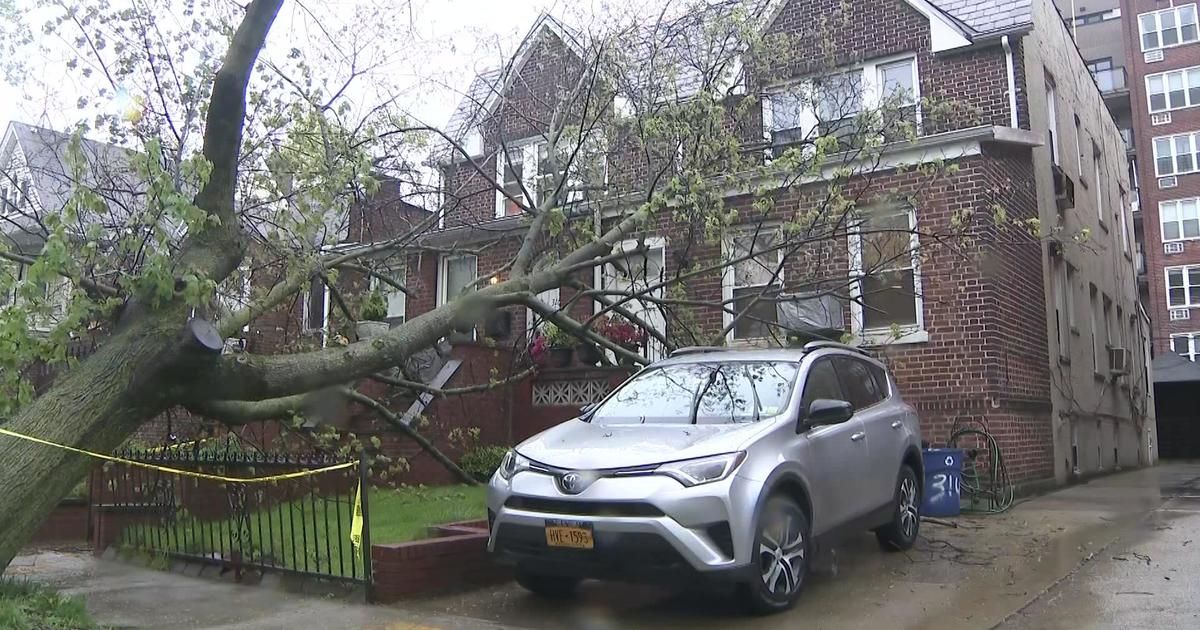De Blasio, Others Call On Congress To Pass Emergency Zika Funding
NEW YORK (CBSNewYork) -- Mayor Bill de Blasio and Congresswoman Carolyn Maloney are calling on Congress to pass emergency funding to help fight Zika.
De Blasio said Tuesday that there are 480 confirmed cases of Zika in New York City. Most appeared to be connected to travel to affected areas.
The city has tested more than 3,400 pregnant women for the virus, and 49 tested positive. One baby was born with microcephaly due to Zika, de Blasio said.
"We see the danger of the spread of this disease rapidly in the United States, this requires a coordinated national response and that could only happen via the Congress authorizing the $1.9 billion," de Blasio said during a news conference at the city's Public Health Lab on Tuesday. "We're going to keep doing what we need to do and spending the money that we need to spend but we expect the federal government to be a partner."
The mayor said the city has committed $21 million to protect New Yorkers from Zika.
The city will be spraying in Upper Manhattan and Queens this week to eliminate mosquitoes that might carry the Zika or West Nile viruses.
"We've been intensifying our mosquito killing efforts in many parts of the city beyond even that which we've done in the past," de Blasio said.
The Department of Health and Mental Hygiene will spray between 10 p.m. and 6 a.m. Wednesday in Fort George, Inwood, Sherman Creek, Sugar Hill, and Washington Heights in Manhattan, and in Auburndale, Bayside, Corona, Flushing, Fresh Meadows, Murray Hill, Pomonok, and Queensboro Hill in Queens, according to the department.
The neighborhoods were selected with a mosquito adulticide due to a large presence of Aedes albopictus, or the Asian tiger mosquito, in mosquito traps set by the city.
The spraying will be moved to Thursday in the event of inclement weather.
MORE ON ZIKA FROM THE CDC: Basics | FAQ | Info For Pregnant Women | Symptoms, Diagnosis & Treatment | 10 Facts About Zika
Some residents expressed concerns about the pesticides, but many feel the good outweighs the bad, 1010 WINS' Samantha Liebman.
"It's good and bad cause the pesticides go in the air and affect everybody but in the long run it's gonna prevent the Zika virus and West Nile," one resident said.
"It's a big concern, the chemicals, the air is already polluted," another resident said.
"I guess it's necessary. I lived in Dallas for eight years and that's a thing they did often. I'm OK so far," another said.
The health department said it is fairly safe, but residents should stay inside and close vents during spraying, Liebman reported. It's the last round of spraying for the season.
Zika primarily spreads through bites from tropical mosquitoes. As CBS2's Dr. Max Gomez reported, most people won't even know they have been infected by Zika, because it often causes no symptoms at all or just mild symptoms.
For those who do have symptoms, the most common include fever, rash, joint or muscle pain, conjunctivitis – also known as pink eye – and a headache. The symptoms usually last just a few days to a week.
The real issue is for pregnant women who are at greatest risk because the virus can cause devastating birth defects such as microcephaly, where the baby's brain fails to develop normally.
Lacking a vaccine or treatment, the best protection against Zika is prevention of mosquito bites, CBS2's Dr. Max Gomez reported last month. That means using insect repellent containing the ingredient DEET.
A U.S. travel warning was recently issued for a neighborhood in Miami where Zika is being spread locally by mosquitoes.
Florida Gov. Rick Scott confirmed that 30 people have now been infected with the Zika virus from mosquito bites.
Also, a Texas resident who traveled to Miami has tested positive for the virus. It's the first case to be linked to travel within the continental U.S.
The Health Department emphasized that while Aedes albopictus mosquitoes can carry the Zika virus, there have not been any Zika cases that have originated in New York City and most of the Zika cases in Latin America, the Caribbean and Florida are caused by different species, Aedes aegypti.
For the West Nile virus, most people don't suffer any symptoms, but generally, people over the age of 50 are more susceptible to the flulike symptoms that can accompany the virus.
In most instances, mild cases of West Nile can cause stomach pain, diarrhea, fever, headaches, swollen glands and sore throats. In addition to older adults, children are also at high risk.



